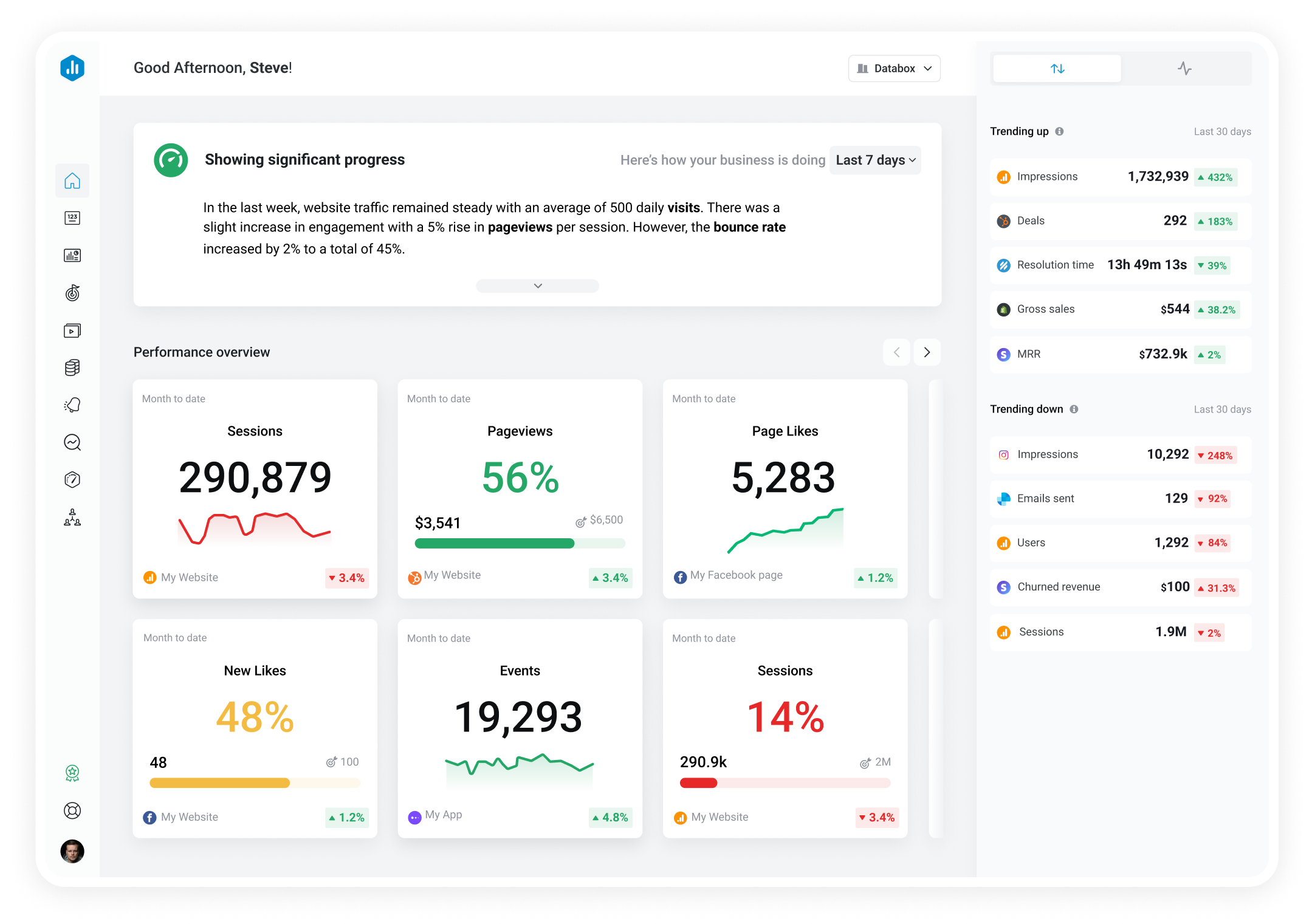Track all of your key business metrics from one screen
GET STARTED
 QuickBooks
Long-term Liabilities (Accrual) by Category
QuickBooks
Long-term Liabilities (Accrual) by Category This metric categorizes long-term debt recorded on an accrual basis—covering loans, mortgages, bonds, etc.—to provide a clear view of a business's incurred liabilities in QuickBooks.
With Databox you can track all your metrics from various data sources in one place.

Used to show comparisons between values.
Databox is a business analytics software that allows you to track and visualize your most important metrics from any data source in one centralized platform.
To track Long-term Liabilities (Accrual) by Category using Databox, follow these steps:
 Goals
Goals Scorecards
Scorecards Metric Digest
Metric Digest Metric Builder
Metric Builder Data Calculations
Data Calculations Performance Screen
Performance Screen